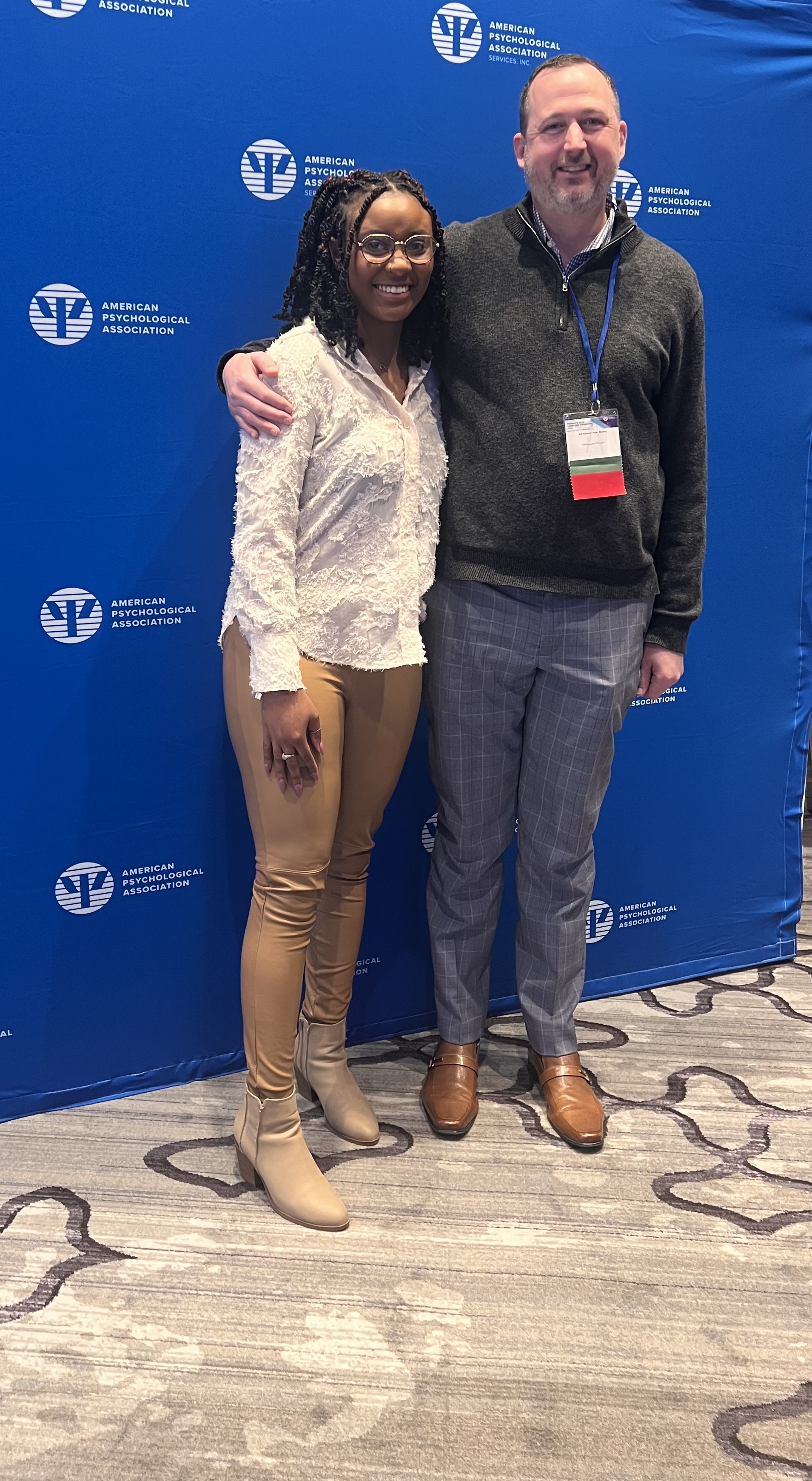Childhood situations often influence the career path an individual will choose, especially in health care. KCU clinical psychology student Zikeya Byrd is a prime example. Trauma and struggles with mental health in her youth led her to seek therapy and thus firsthand experience the associated stigma surrounding psychological treatment.
“As a child, I experienced several traumatic situations and they were brushed under the rug by family members,” Byrd explained. “In my community and in my family, mental health was never addressed with anyone. Over time, my trauma manifested into depression, anxiety and PTSD.” Her eventual steps to seek therapy for herself led other family members to follow suit.
Positive outcomes for Byrd and her family inspired her to pursue a career in psychology and to attend Kansas City University to earn a Doctor of Clinical Psychology (PsyD).
As a second-year student, Byrd was encouraged to attend the American Psychological Association (APA) 2024 Practice and SPTA Leadership Conference. At the urging of Jason Malousek, PsyD, assistant director of Clinical Psychology Training, she submitted an application to become one of only 10 student delegates to the conference and was selected. Byrd says she had no idea at the time just how impactful this conference experience would prove to be.
The premier event for APA and State, Provincial and Territorial Psychological Association (SPTA) leaders, the annual conference convenes the APA governing body along with psychologists from the United States, its territories and Canada to foster leadership and effective governance strategies for participating associations and to strategize on issues important to practicing psychologists.
Attending the conference as a student delegate representing the Kansas Psychological Association (KPA) as well as KCU, Byrd had the opportunity to explore the variety of possible avenues in her future career as a clinical psychologist.
“Prior to the conference, I didn't realize how many different directions you can go as a psychologist,” she remarked. “Now, I’m especially interested in prescribing psychology. I want to be a well-rounded psychologist who will not only diagnose my patients, but also provide comprehensive treatment and manage their medications. With an integrated approach, I will be able to provide the continuum of care my patients need without referring them to other practitioners.”
Byrd participated in sessions focused on public policy and she said this reignited her desire to protect the rights of those with mental health conditions and work to eliminate the stigma they face. “I feel like if I would have been able to receive mental health help when things happened in my childhood, my circumstances would not have affected me as much in adulthood as they did,” she recalled. “Seeing the change in my own family made me realize that I can help facilitate change on a bigger scale for others.”
While the entire conference was meaningful to her, in retrospect Byrd recalled two particular highlights: a connection and a quote.
First, among the hundreds of conference participants, she met with Arthur Evans Jr., PhD, chief executive officer and executive vice president of the APA, and he pledged to mentor her. Second, a quote from panelist Amy Beck, PhD, pediatric psychologist at Children’s Mercy Kansas City, still resonates with Byrd. “Dr. Beck said, ‘the most important construct of leadership is courage.’ That really spoke to me because I feel like my past experiences led me to be courageous and determined—to step into roles that I’m offered instead of running away from them.
“Courage has changed the impact of my past traumas and shaped me into becoming a leader in my academics and hopefully, in the future, a leader in the profession,” she said.
Malousek says participation at the conference was a valuable experience for Byrd, not only to learn about the macro impact that psychology can bring to improve wellness and inclusion to ignored populations, but to allow her to embrace leadership and advocacy.
“The role as advocate, leader and trailblazer is often ignored by trainees and programs with a focus on micro impact,” he said. “I am encouraged how quickly she has embraced leadership positions within KPA, APA and KCU. It’s a role often ignored by trainees and programs with a focus on micro impact. KCU’s PsyD program fully embraces work outside the office. Zikeya continues to be an asset and positive representative of our PsyD program and KCU as a whole. And I look forward to what she will do with her new responsibilities as a student representing the KPA.”




